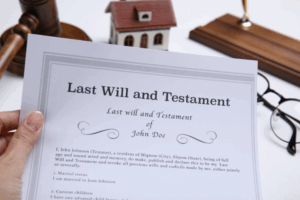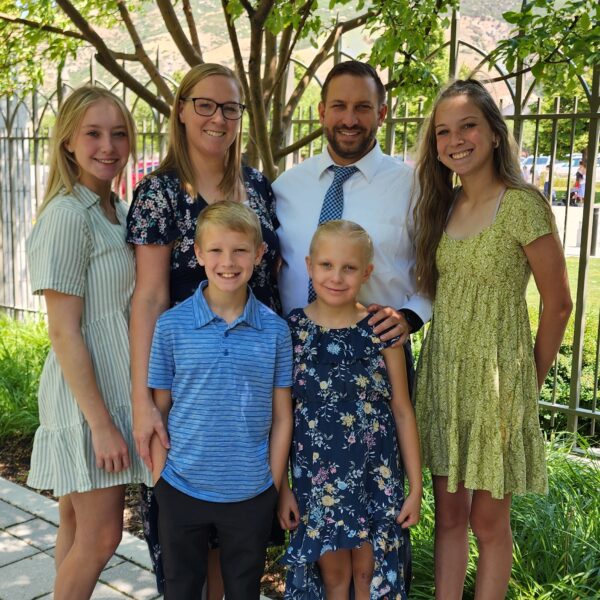When people come together and vow to spend the rest of their lives together in wedded bliss, they sometimes bring to the relationship a child or children from a previous relationship. Maybe after the union, the couple shares a child of their own in addition to the children from previous relationships. This is the typical “his, hers, theirs” family scenario. This article looks at some planning issues to consider when structuring a Will for a blended family.
The threshold question is really this: how much should you give to your spouse versus your children? The three options below showcase the potential results and are arranged from simpler to more complex. For ease of explanation and consistency, I will assume the wife passes before the husband and each husband and wife have an estate valued at $500k ($1M together).
Option 1: All to spouse. The simplest option is to say that all assets of the first to die go to the surviving spouse 100%. The necessary result then is that the surviving spouse can then direct what happens with the total assets (the total $1M). Of course, the couple could have had a Will prepared that provides all assets to the surviving spouse and then, when the surviving spouse passes, all assets split between all the kids (his, hers, and theirs). But, the reality is that the survivor can always change that disposition after death. Perhaps he has a falling out with her kids. Perhaps he remarries. Perhaps he suffers financial ruin for one reason or another. In any case, there is the potential that her children ultimately receive nothing.
Option 2: Split gifts. Another option is for the Will to provide a split of the assets. For example, wife could say that she wants $100k going to each of her two children from the previous relationship and the remaining $300k going to her husband. This technique would guarantee that her children from a previous relationship are able to inherit. The wife might feel some amount of confidence in the fact that her surviving husband will take care of his own biological children (including the child from their relationship).
Option 3: Trusts. In its simplest form, a trust is a restriction on the use of an asset. In this case, the wife might say she wants all her assets ($500k) going into trust for the benefit of her husband. This allows the husband to use the money during a specified time (usually lifetime) but keeps the later distribution at his death to her chosen beneficiaries – perhaps again her children from the previous relationship or perhaps all her biological children or even all the children collectively. A trust adds complexity to the plan and some amount of oversight – usually from the children that will later benefit from the trust. This can be a situation that families should think through – do you want your children from a previous relationship having oversight over your spouse’s use and enjoyment of trust assets?
The options can be mixed, too. For example, the wife could say that she wants $100k to each of her two children from the previous relationship and the remaining $300k going to trust for the benefit of her husband.
Based on my own anecdotal experience, the decision often hinges on two main factors: (1) the amount (value) of assets; and (2) how young the children from the previous relationship were when the couple got married. On the first issue of the amount of assets, the smaller the amount, the less practical the trust becomes. Conversely, the larger the amount of assets, the more practical it is to utilize a trust. As an aside, a trust for a spouse might also help to mitigate estate tax making the proposition even more compelling for those with a higher net worth. On the second issue, the younger the children you bring into the marriage, the more likely that you might feel that your spouse will ultimately take care of your child. For example, a second spouse might have a harder time connecting and creating a relationship with your 17-year-old than with your 1-year-old. This is not true in every case or every time, but it might provide a helpful paradigm as a person works through the complex emotions that can arise when working through the estate plan and trying to both take care of a beloved spouse and also ensure that the same person doesn’t feel like they have neglected his or her own children.
Which one works best? It depends on what the couple is trying to accomplish as well as the level of conviction the individual has that his or her wishes will ultimately be carried out by the surviving spouse.
390479-2
* Licensed, not practicing.
The opinions voiced in this material are for general information only and not intended to provide specific advice or recommendations for any individual or entity. This information is not intended to be a substitute for specific individualized tax or legal advice. We suggest that you discuss your specific situation with a qualified tax or legal advisor.
Securities offered through LPL Financial, Member FINRA/SIPC. Investment Advice offered through Cornerstone Wealth Strategies, Inc., a registered investment advisor and separate entity from LPL Financial.












